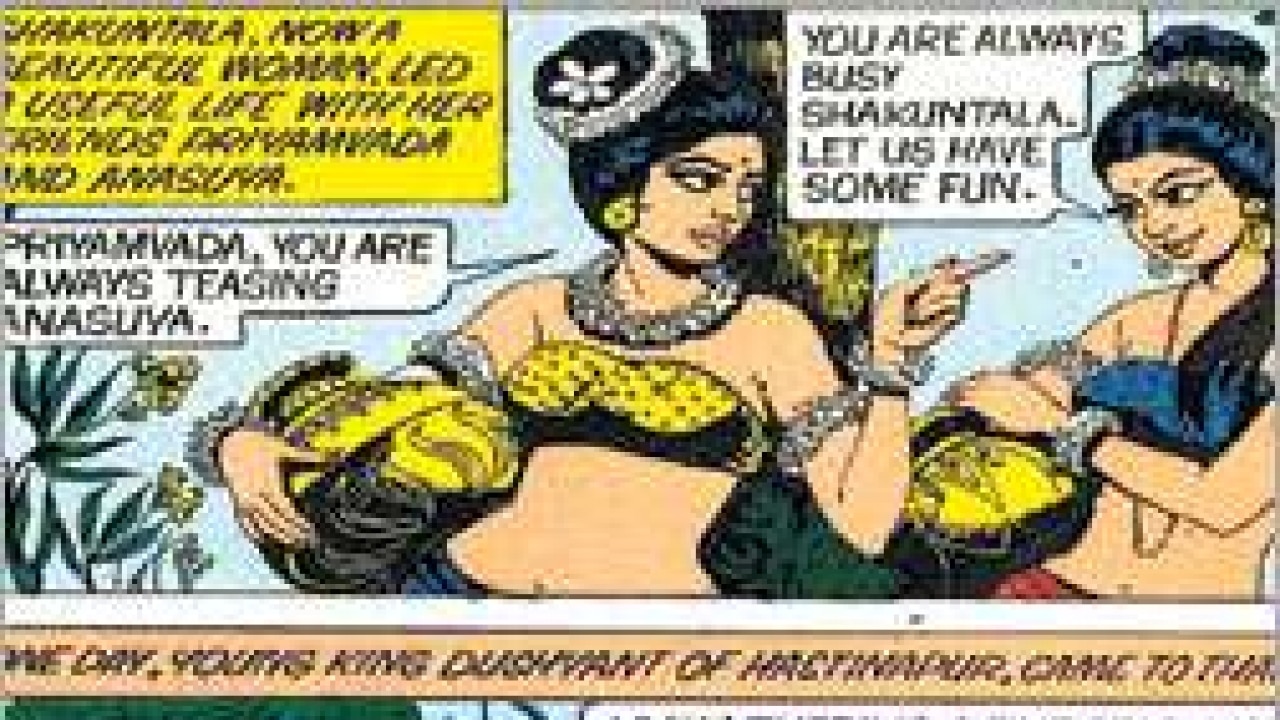
There are certain quintessential experiences and objects associated with growing up in India that give us a sense of shared identity — Bollywood posters, the Mangeshkar sisters, the ambassador car, the Nehru cap, ration lines, cricket etc. Surely, the Amar Chitra Katha (ACK) series is one experience that encapsulates our sense of culture and history in our formative years. Since 1970 when the first ACK comic, Krishna was published until now, 37 years, 400 titles and 80 million copies later, several generations of young readers have been spared the need to actually plough through the book versions of our humungous epics, Puranas, and folk tales. Not to mention the arduous task of piecing together biographical information on our famous nationbuilders. ACK and Tinkle, its sister publication have potently packaged our national heritage in the comic strip format.
The spectacular success of ACK has attracted academic interest leading to a few dissertations about its distinctive strategy of popularising culture through convenient bite-sized morsels.
Expectedly, the ACK model has had its share of detractors who have leveled criticism ranging from the mild to the outright virulent.
One of the more common complaints against ACK is that in presenting culture in a package, it is responsible for dilution and oversimplification of historical ideas that require more depth of understanding. While it may be true that ACK readers internalize the facts, the extent of its internalisation varies. In cosmopolitan homes where children are exposed to all kinds of books, different kinds of cultural experiences and where there is a climate of discussion and debate, the ‘damage’ is, perhaps, limited. But when they are exposed to little else it can be dangerous. Dangerous of inculcating an unilinear point of view — or so the argument goes.
Another grouse against ACK appears to be that the comics underline a Hindu nationalist ideology since the vast majority of stories in its massive production line are derived from Hindu mythology —and presented in such a realistic manner as to create an impression of literal truth.
But these are mild complaints compared to certain other views which stop at nothing short of condemning the creators of this series of racial, sexist and with communal overtones.
Few examples: Chaitanya not only stemmed the tide of conversion to Islam, but also provided a new life force to Hindu religion, and Jasma in Jasma of the Odes saying of her husband, Oh god! My husband is a cripple! He’s ugly too! Alas! What have I done to deserve this? And, in another comic: You dunce of a hunchback! Are you thick-lipped too? Draupadi is described as the total woman; complex and yet feminine. (The accompanying picture shows a shapely woman in a transparent something, carefully positioned in the frame that highlights her buxom figure, curves and cleavage.) In an Akbar-Birbal classic teaching that mothers think their own babies are the most beautiful, there is a picture of a gross, dark, thick-lipped, naked baby to show that the child is from a ‘lower caste’, is poor, is ugly, and not desirable.
There is an Amar Chitra Katha strip on Aurangzeb. In it he is shown to be forever sitting on the prayer mat while exhorting his soldiers to “kill all Hindus”. With slight variations the same image can be found in almost all of ACK’s historical comics dealing with ‘freedom fighters’, from Shivaji to Guru Gobind. Muslim soldiers, bearded, ruthless, killing, converting, and destroying everything in sight.
Clearly, in the 1970s, political correctness and levels of sensitivity were not what it is today. While pundits may debate the question of whether ACK has been guilty of propagating obscurantism, I also feel that in the last 10 years, the ACK team has reflected the changing landscape of this country through its works.
However, unlike the artificial and Indianized Gotham comics that are an offshoot of Marvel and DC comics, ACK is original and rooted in Indian soil. It will survive and continue to enthrall future generations, provided it reinvents itself, addressing newer concerns and a global world view that goes beyond the mere trawling of our civilization, however ancient it may be.
The writer is an illustrator.